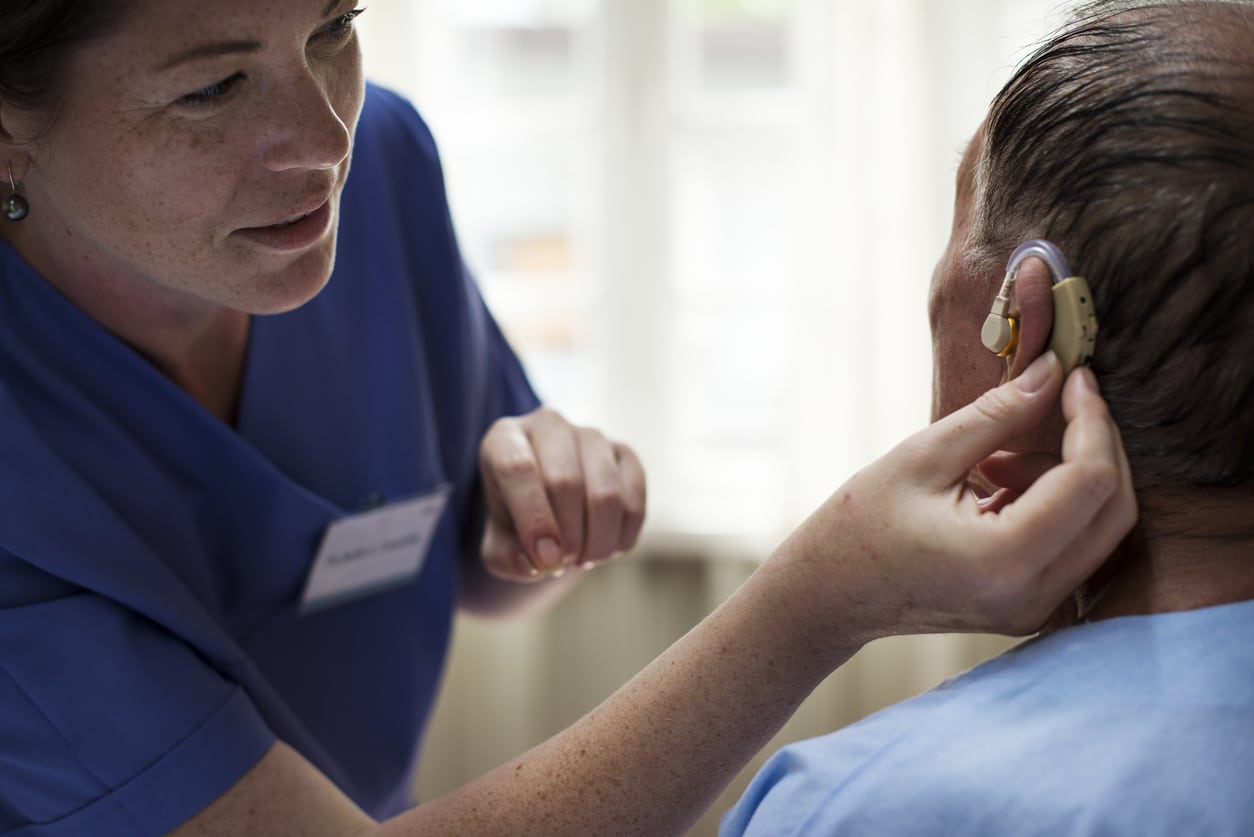Hearing aids are an incredible technology that can improve the lives of up to 28 million adults in the United States. These compact devices enable people with hearing loss to enjoy independence, clear conversations at home and easy ordering at The Art of Coffee. However, to maintain their effectiveness, hearing aids require regular maintenance and periodic adjustments.
Common Sources of Hearing Aid Malfunction

A few sources of hearing aid malfunction include:
- Wear and tear. Over time, the components of hearing aids can degrade or wear out, affecting their performance and requiring reprogramming.
- Software updates. Manufacturers may release software updates for hearing aids that improve performance or add new features. In some cases, these updates might affect sound delivery and require reprogramming.
- Low battery. Like any other electronic device, hearing aids require juice to work well. If your devices’ batteries are low, they can affect sound quality. While low batteries do not usually require an audiology visit, there may be cases where your devices drain batteries too quickly or continue to malfunction after charging.
One key solution to hearing aid malfunction is reprogramming, which involves fine-tuning the hearing aids to match changes in the wearer’s hearing needs.
Three Signs It’s Time for a Programming Appointment
Three signs it’s time to contact your hearing aid specialist for a reprogramming include:
- Changes in hearing. A significant sign that your hearing aids may require reprogramming is a noticeable change in your hearing abilities. If you find it harder to hear previously clear sounds or if certain frequencies seem muffled or distorted, it may indicate that your hearing aids are no longer effectively addressing your hearing loss.
- Difficulty hearing in different environments. Hearing aids help you hear clearly in various settings, from quiet home conversations to noisy restaurants or busy streets. If you struggle to hear in specific environments, it may signal that your hearing aids need reprogramming.
- Whistling sounds. Whistling noises from your hearing aids can stem from several issues, including wax buildup (most common), poor placement or the need for reprogramming. If you experience persistent feedback or whistling sounds, addressing the issue promptly is essential. Sometimes, a simple cleaning can resolve the problem, but reprogramming by a professional may be necessary if it continues.
Regular maintenance and adjustments are vital for ensuring your hearing aids deliver clear and comfortable sound. If your devices no longer provide sufficient clarity, contact Evergreen Speech and Hearing Clinic today to speak to a hearing aid expert.